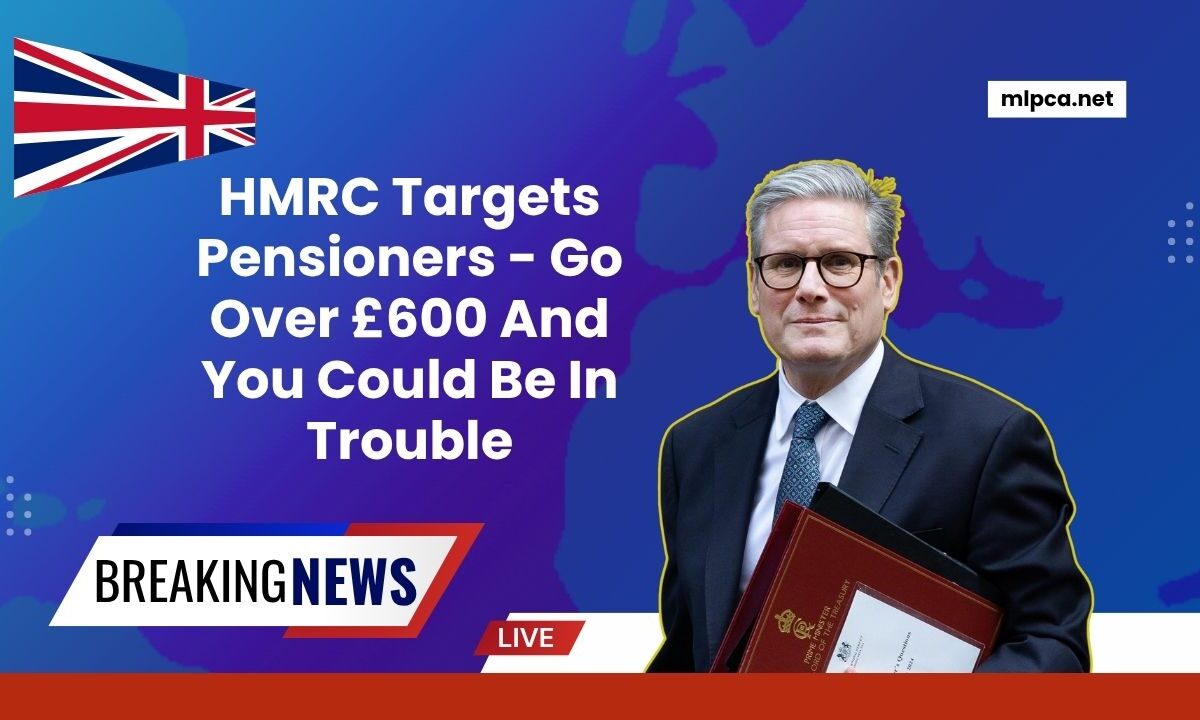The Department for Work and Pensions (DWP) has confirmed a £657 increase in the State Pension for the 2025/26 tax year, thanks to the Triple Lock system.
While this is good news for millions of pensioners, a new warning from tax experts and financial advisors reveals a potential tax trap—as retirees approach the £12,570 Personal Allowance threshold, they may now be liable to pay income tax.
Let’s break down how much your State Pension will increase, what it means for your income, and when HMRC could step in to collect tax.
Triple Lock Leads to £657 Pension Uplift
The Triple Lock policy ensures that the State Pension increases each year based on the highest of:
- Average earnings growth
- Inflation (CPI)
- Or 2.5%
For 2025/26, average earnings rose by 5.5%, making it the metric that determines the pension increaseNew Weekly and Annual State Pension Amounts
| Tax Year | Weekly Payment | Annual Total | Increase from Previous Year |
|---|---|---|---|
| 2024/25 | £230.25 | £11,973 | — |
| 2025/26 | £242.90 (est.) | £12,630.80 | £657.80 |
This increase ensures that pensioners can better manage rising living costs, but there’s a catch.
HMRC Tax Warning – The £597 Danger Zone
With the full new State Pension set to rise to £12,630.80, pensioners receiving the maximum amount will exceed the tax-free Personal Allowance of £12,570 by £60.80.
This means that:
- Every £1 earned over £12,570 is taxed at 20%
- This applies until income reaches £50,270, after which the rate jumps to 40%
Tax Implication Example
| Annual Income | Amount Taxed | Tax Rate | Total Tax Due |
|---|---|---|---|
| £12,630.80 (State Pension) | £60.80 | 20% | £12.16 |
| £13,500 (with side income) | £930 | 20% | £186.00 |
Even though the tax payment may seem small, many low-income pensioners are unaware that they may now need to register for Self Assessment or have tax collected via PAYE.
What Experts and Campaigners Say
The Low Incomes Tax Reform Group has urged both DWP and HMRC to work together and inform pensioners if they’re approaching or crossing the Personal Allowance threshold. They suggest:
- Adding warnings to State Pension letters
- Explaining how tax will be collected
- Estimating tax liabilities in advance
Martin Lewis Weighs In
Renowned financial expert Martin Lewis addressed this on his podcast, clarifying that:
“You only pay 20% tax on the income above the threshold. Yes, you get taxed—but you still earn more.”
He argued that increasing your pension is still beneficial, even with taxation. For example, if a pensioner earns £1,000 extra, they keep £800 after tax, which is still more than not having the income at all.
However, he also highlighted a key point for low-income retirees:
“If you qualify for Pension Credit, you may already be topped up to the full State Pension—so buying extra years may not help.”
Should You Be Concerned?
If you’re receiving the full new State Pension, you are within £597 of the tax threshold in 2024/25. From April 2025, if you’re getting £12,630.80, you’re over the threshold.
If you also have:
- A private pension
- Rental income
- Earnings from part-time work
You could owe more than just £12 in tax and might need to file a tax return.
The DWP’s new State Pension boost of £657 is a welcome improvement for millions of UK pensioners, but it also comes with a hidden risk.
As more retirees approach or exceed the £12,570 Personal Allowance, many could find themselves unintentionally liable to pay income tax.
While the additional pension income is still valuable, it’s crucial that pensioners stay informed about their tax situation. The DWP and HMRC must ensure clear communication to avoid confusion and surprise tax bills.
If you’re unsure about your tax status or have additional income sources, now is the time to check your eligibility and plan accordingly.
FAQs
Will I be taxed on my State Pension in 2025?
Yes, if your total income exceeds the £12,570 Personal Allowance, you will be taxed on the amount above that threshold at 20%.
Do I need to file a tax return if I exceed the threshold?
Possibly. If HMRC doesn’t collect the tax via PAYE, you may need to complete a Self Assessment tax return.
Can Pension Credit offset this tax issue?
If you’re eligible for Pension Credit, it may top up your income without putting you over the threshold. However, if you add contributions voluntarily, it might cancel out the benefit.

